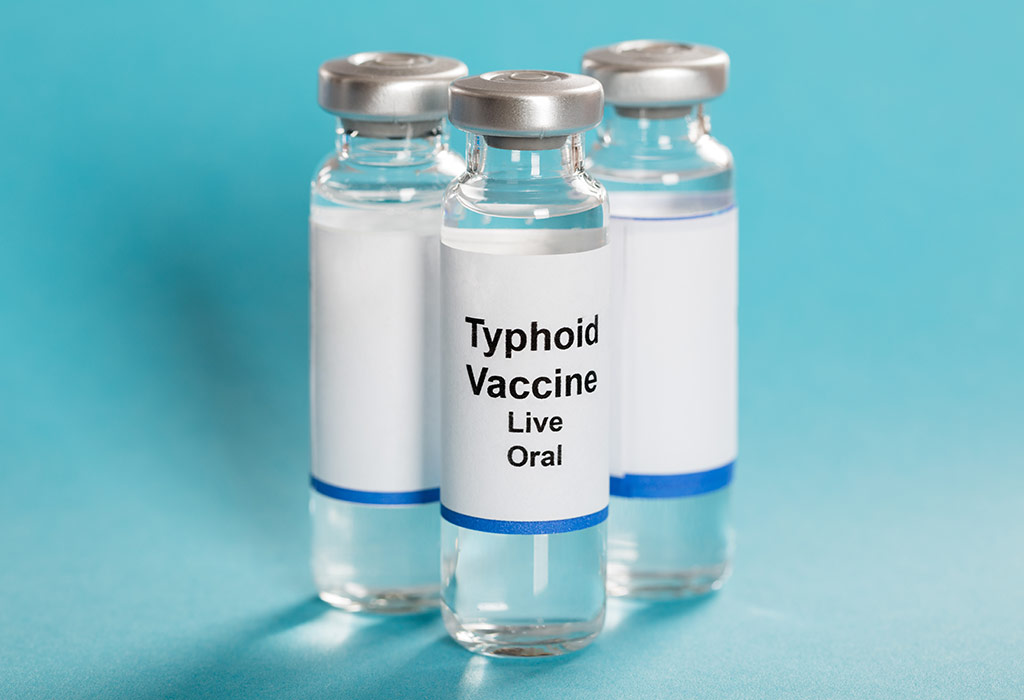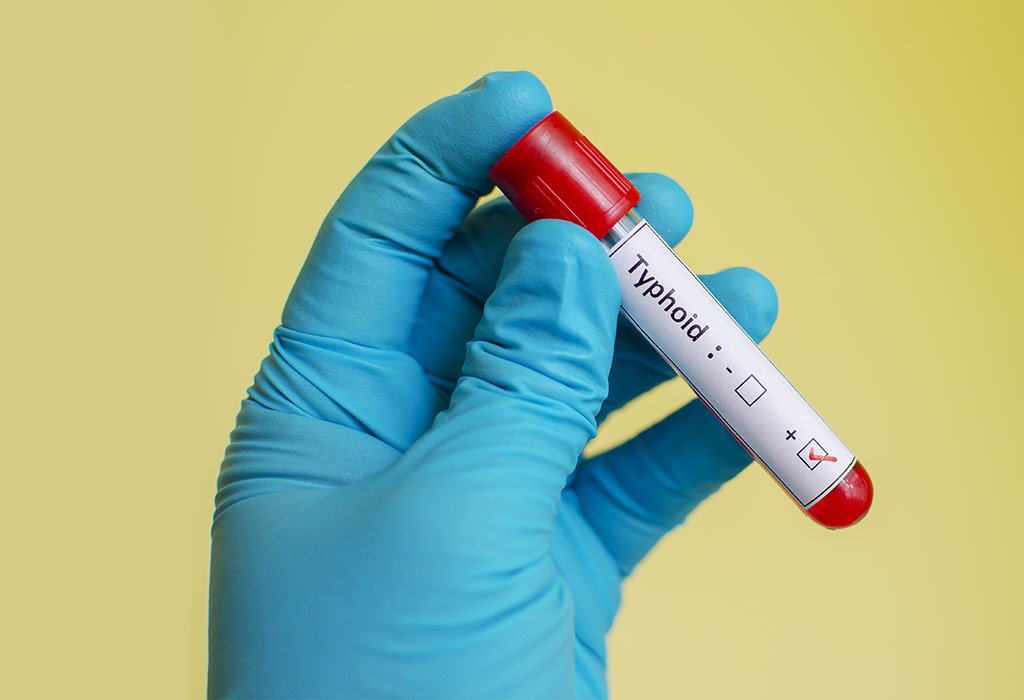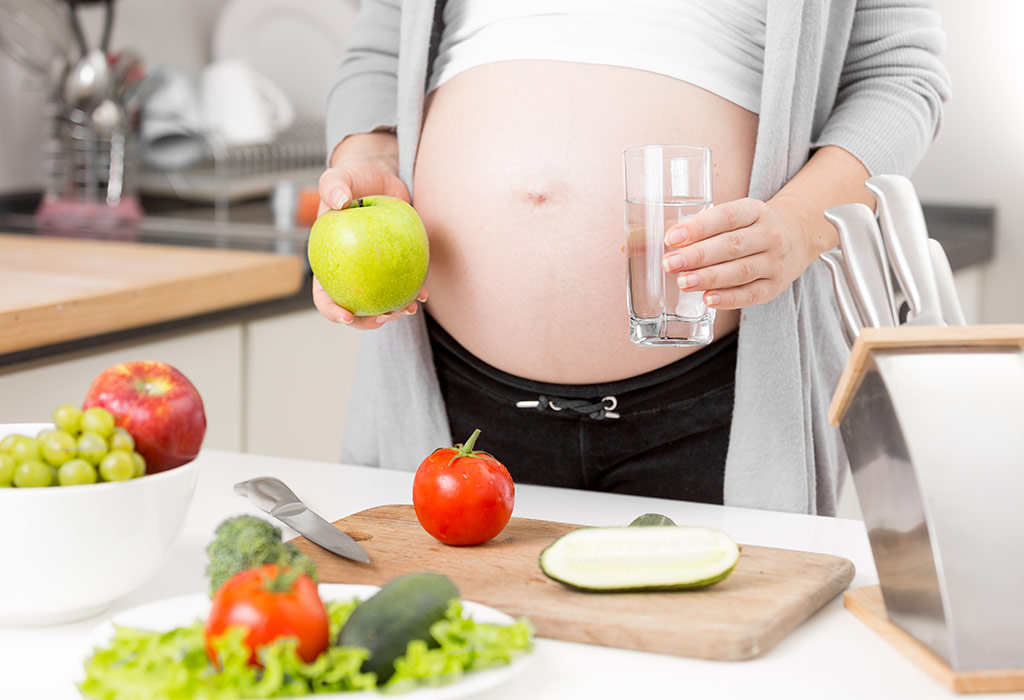Typhoid in Pregnancy – Reasons, Symptoms, and Treatment

When a woman is pregnant, she needs to take extra care of herself as a lot of complications can arise during this time. Hormonal changes, immune system adjustments, and increased susceptibility to illnesses make this period particularly delicate. During pregnancy, a woman may also contract certain infections, which might lead to severe diseases. One such disease that a pregnant woman may suffer from is typhoid. Typhoid fever can have severe consequences if left untreated. Typhoid fever can be detrimental to the health of the pregnant woman and the baby growing in her womb. It may lead to dehydration, high fever, and even miscarriage or preterm labor in extreme cases. Read on to learn more about typhoid in pregnancy and how it can be treated effectively to safeguard both mother and child.
What Is Typhoid?
According to the CDC, typhoid is a bacterial infection caused by Salmonella typhi that can lead to a high fever, vomiting, and diarrhoea (1). It is actually a bacterial infection that spreads rather easily. Salmonellae are intracellular Gram-negative bacteria that are the causative agent of typhoid fever (2). The bacteria generally spread from the intestines, multiplying as they progress in the bloodstream and gradually affect the organs. The symptoms of typhoid include gastrointestinal problems and a high fever. According to a 2013 case study published online in the Case Reports in Medicine, pathogens like S. Typhi could cross the placenta to cause placental abruption, inflammation, and the expulsion of the placenta and fetus (2).
Paratyphoid is a similar disease caused by the bacteria Salmonella paratyphi, but it is the lesser of the two evils as its effects are generally milder. The bacteria Salmonella typhi that cause typhoid also cause food poisoning.
How Common Is Typhoid Fever?
Typhoid fever is relatively rare in developed countries with advanced sanitation and healthcare systems, but it remains a significant public health concern in many low- and middle-income regions, particularly in parts of South Asia, Southeast Asia, Africa, and Latin America, where access to clean water and proper hygiene is limited. Globally, an estimated 11–21 million cases occur annually, with approximately 128,000–161,000 deaths each year, according to the World Health Organisation (WHO). Pregnant women in endemic areas are at higher risk due to weakened immune responses during pregnancy, making prevention through vaccination, safe food practices, and clean drinking water crucial. While typhoid is not extremely common in pregnancy, its potential severity necessitates awareness and prompt treatment to avoid complications for both mother and baby.
What Are the Causes?
Typhoid fever is caused by poor hygiene and lack of sanitation. Poor quality drinking water is probably one of the major causes of contracting a bacterial infection. Human waste, if infected with bacteria, is also a reason for typhoid (3). Using public toilets that do not have proper sanitation facilities can also cause typhoid. Basically, any contact in any form with an infected person or exposure to areas where there is a lack of hygiene can cause this highly contagious disease.
Signs and Symptoms
There are many signs & symptoms of typhoid in pregnancy, and most of them are similar to the symptoms of malaria. However, typhoid symptoms begin to manifest anywhere between 6 and 30 days after exposure to the bacteria. The following are the symptoms of typhoid according to the NHS (4):
- High fever combined with vomiting
- Weakness and exhaustion
- Fast and severe weight loss
- Loss of hunger
- Severe abdominal pain
- Frequent headaches
- Constipation or diarrhoea
- Chest congestion
How Does Typhoid Infection Spread?
The bacterium Salmonella typhi lives in the intestines and bloodstream of humans and spreads into other organs and tissues of the body. This infection spreads in the following cases (5):
- Living in areas with poor water quality and sewage disposal often shows traces of typhoid infection. Drinking contaminated water that has traces of typhoid bacteria, Salmonella Typhi, can spread the infection.
- Eating raw fruits and vegetables that are grown on farms and irrigated with sewage water, which is contaminated with Salmonella Typhi bacteria, can cause the infection to spread. One must wash the fruits and veggies well before eating them and avoid drinking raw milk and flavoured drinks as they may carry salmonella bacteria.
- Typhoid spreads easily through faecal-oral transmission. Poor hygiene practices, such as not washing hands after using a bathroom and using dirty public toilets, may cause the infection to spread.
NHS confirms that typhoid is a highly contagious disease (6). It can easily spread through the hand-to-mouth transmission. This means that if you share anything with an infected person, there is a good chance that you may contract the disease. Since typhoid can be contracted in poor living conditions, a large number of people can be affected, giving way to an epidemic.
How Is the Typhoid Vaccine Administered During Pregnancy?
When a woman is pregnant, her immune system is weakened, so she may contract typhoid infection. This is why taking a typhoid vaccination in pregnancy is suggested. If you indeed run a risk of contracting typhoid from exposure, vaccination is available in order to prevent the same. Instead of the live vaccine (which can be detrimental to the health of the baby), pregnant women are usually administered the inactivated polysaccharide vaccine type Vi (7). Pregnant women are advised to get vaccinated at least two weeks before the threat of exposure.
CAUTION: Exposure to the typhoid vaccine at any stage of pregnancy is generally not considered a medical reason for pregnancy termination or the need for additional fetal monitoring. However, individual cases may involve other risk factors that could independently increase the likelihood of adverse pregnancy outcomes. Clinicians should carefully evaluate these factors during case-specific risk assessments.
Diagnosis
As mentioned, the symptoms of typhoid while pregnant are similar to those of malaria and dengue. Hence, this disease cannot be diagnosed on the basis of its symptoms. Sometimes, the symptoms may help a doctor diagnose the disease, but in most cases, the usual signs are not enough to establish the onset of typhoid. So if the fever lasts for more than a week, the doctor might suggest a Widal test in order to determine the disease. Your doctor may also ask you to take a haemoglobin test or bone marrow order to determine the disease.
Treatment for Typhoid in Pregnancy
Managing typhoid in pregnancy, especially in the 2nd and 3rd trimesters, requires extra caution to protect both mother and baby. Typhoid is usually treated with antibiotics. The usual time period for treating typhoid is 7-14 days. Sometimes, it is mostly the fever that you can really take medicines for. To combat the symptoms of typhoid, you should take care of yourself at home by following a proper pregnancy diet, drinking lots of fluids and taking good care of yourself. The trick is to cut off exposure from the infected person so that the infection does not spread.
Typhoid can be difficult to treat during pregnancy. The usual antibiotics used to treat typhoid are generally not given to pregnant women as they are a threat to the baby. In such a scenario, treatment of typhoid fever in pregnancy is done with third-generation cephalosporins and ampicillin/amoxicillin (8). However, these medicines should only be taken after consulting with a doctor.
What Are the Complications?
If a woman has typhoid fever during pregnancy, it can affect her health as well as her baby’s health adversely. If the disease remains undiagnosed and untreated, there is a high risk of a miscarriage, uteroplacental infection, gastrointestinal complications like gastrointestinal bleeding, intestinal perforation, and hepatic dysfunction, and vertical intrauterine transmission causing neonatal typhoid (9). As a result of typhoid fever, a woman may feel weak for days, and she may even go on a liquid diet for some time. As a result, the baby may not get enough nutrition for his proper growth and development.
If a woman contracts typhoid infection during pregnancy, there is a high chance of the baby being born prematurely or underweight. In addition, oral active vaccinations can seriously prove to be dangerous for the baby.
How to Protect Yourself From Getting Typhoid?
If you want to prevent yourself from contracting typhoid infection during pregnancy, then you must maintain proper hygiene and sanitation. Taking simple precautions such as washing hands before cooking, before eating, and after using the toilet can help you take care of yourself. Here is what you can do to prevent this infection (10)(11):
- Eat healthy food at hygienic places. The food should be cooked well and not contaminated.
- Wash vegetables and fruits before eating them.
- Drink plenty of fluids and good, safe drinking water or boiled water.
- Maintain a safe distance from the people who are already suffering from this disease.
- Avoid eating raw fruits and vegetables and undercooked meat.
- Maintain proper sanitation in your home.
- Follow good personal hygiene – wash your hands well after using the toilet and before and after your meals.
- Stay up to date on all your vaccinations, including typhoid vaccine.
- Avoid ice in your drinks when you are taking any food containing ice from street vendors, as the ice water could be contaminated, too.
- Use clean utensils for cooking, storing, drinking, and eating food.
- Avoid travelling to places where typhoid fever is endemic or currently in peak (7).
Typhoid Diet Tips for Pregnant Women
Typhoid fever during pregnancy requires special dietary care to ensure proper recovery and nourishment for both mother and baby. The following are the foods to eat and avoid when diagnosed with typhoid:
Foods to Eat
- Bananas
- Boiled Rice
- Yogurt (Curd)
- Boiled Potatoes
- Moong Dal
- Steamed Apples
- Porridge
- Coconut Water
- Boiled Eggs
- Herbal Teas
Foods to Avoid
- Raw or Uncooked Foods
- Street Food/Unhygienic Meals
- Spicy and Oily Dishes
- High-Fiber Whole Grains
- Tough Meats
- Unpasteurized Dairy
- Caffeinated Drinks
- Carbonated Beverages
- Processed/Packaged Snacks
FAQs
1. Can the typhoid vaccine cause birth defects?
Regarding typhoid injection for pregnant women, there is no study that proves that typhoid vaccines can lead to birth defects in the baby unless the pregnant lady ends up choosing active vaccination instead of the polysaccharide vaccine. In the case of an active vaccine, the baby may be born with birth defects.
2. Can the typhoid vaccine cause a miscarriage?
If the typhoid disease remains undiagnosed and is left untreated during pregnancy, then the woman may have a miscarriage. However, the pregnant woman is given an inactivated (or killed) vaccine, which is safe and poses no harm to the baby. A woman should not be given a live vaccine for typhoid during pregnancy as it may prove to be hazardous for the health of her baby.
3. How does typhoid affect the pregnant woman and her baby?
A pregnant woman may feel fatigued because of this disease. The mother’s body may weaken considerably making it next to impossible for her to take the pregnancy to term. Also, since treatment includes a liquid diet mostly, both the mother and the baby may lose out on nutrition.
4. Can typhoid spread from a mother to her baby?
Yes, typhoid can spread from a mother to her unborn baby during pregnancy. The neonatal typhoid can cause several complications, such as neonatal sepsis, stillbirth, miscarriage, and preterm labour.
5. What type of typhoid vaccine should pregnant women take?
Pregnant women must consult their doctor for the recommended safe typhoid vaccine during pregnancy.
If the disease is not treated in time, there are high chances of a miscarriage. In case the bacteria reaches the baby, there is a good chance that there might be some deformity at birth or the baby may be born prematurely or weigh less.
6. Can the typhoid vaccine cause learning and behavioural problems in the child?
There are no proven studies to suggest the same.
For mothers who have been given inactivated vaccine during the 1st month of pregnancy and typhoid has been successfully prevented, there is no chance of the baby being infected in any way.
This was all about typhoid and pregnancy. The establishment of typhoid fever and pregnancy complications is not unknown now. Thus, during pregnancy, a woman should take care of herself in the best possible way. Typhoid in pregnancy 3rd trimester or 2nd trimester can be equally fatal as it could be in the first trimester, so expecting moms are advised to exercise extreme caution in their daily chores. By following the prevention tips mentioned above, you can stay safe during pregnancy and protect yourself from contracting this contagious disease.
References/Resources:
1. CDC – About Typhoid Fever and Paratyphoid Fever
4. NHS – Symptoms – Typhoid fever
5. Department of Health New York – Typhoid Fever
7. UKTIS – Use of Typhoid Vaccine in Pregnancy
8. National Library of Medicine – Typhoid fever in pregnancy
9. National Library of Medicine – Typhoid fever during pregnancy: case report and review
10. WHO – Typhoid
11. Cleveland Clinic – Typhoid Fever; Cleveland Clinic
Also Read:
Listeria in Pregnancy
Bronchitis in Pregnancy
Torch Infection while Pregnant
How to Deal with Chikungunya in Pregnancy
Was This Article Helpful?
Parenting is a huge responsibility, for you as a caregiver, but also for us as a parenting content platform. We understand that and take our responsibility of creating credible content seriously. FirstCry Parenting articles are written and published only after extensive research using factually sound references to deliver quality content that is accurate, validated by experts, and completely reliable. To understand how we go about creating content that is credible, read our editorial policy here.






































